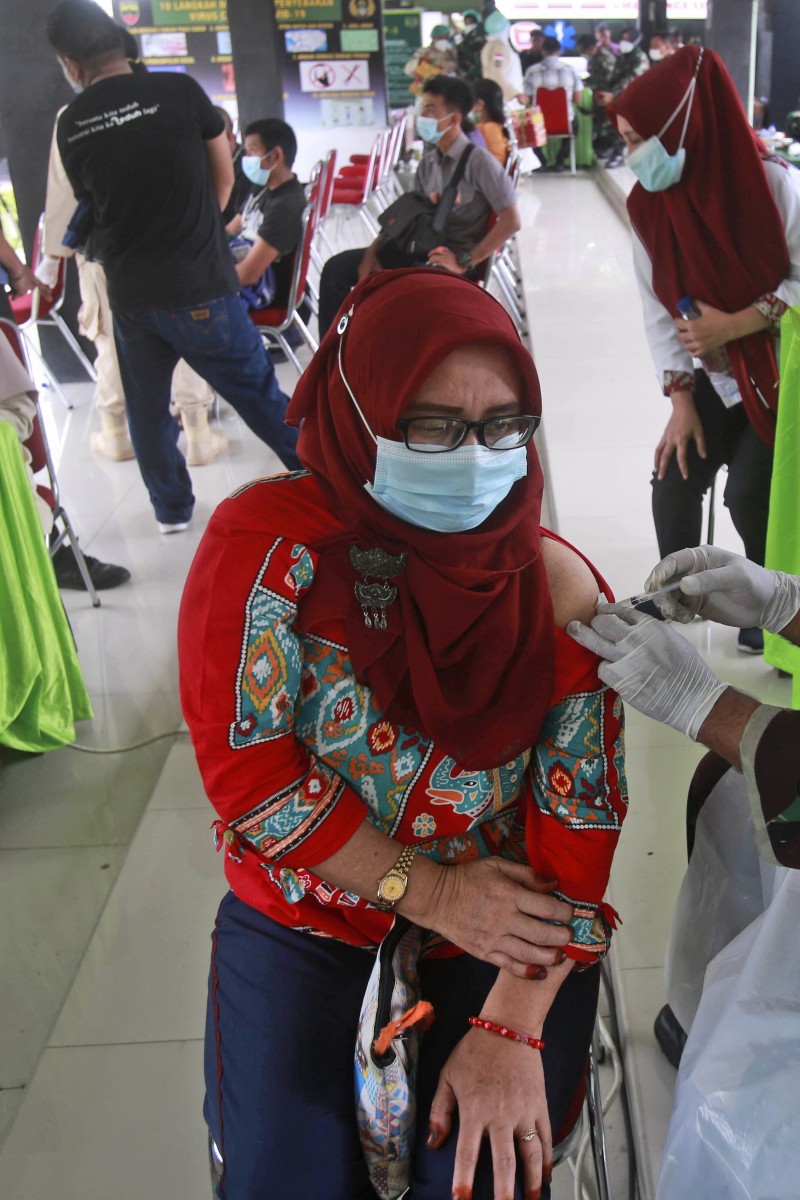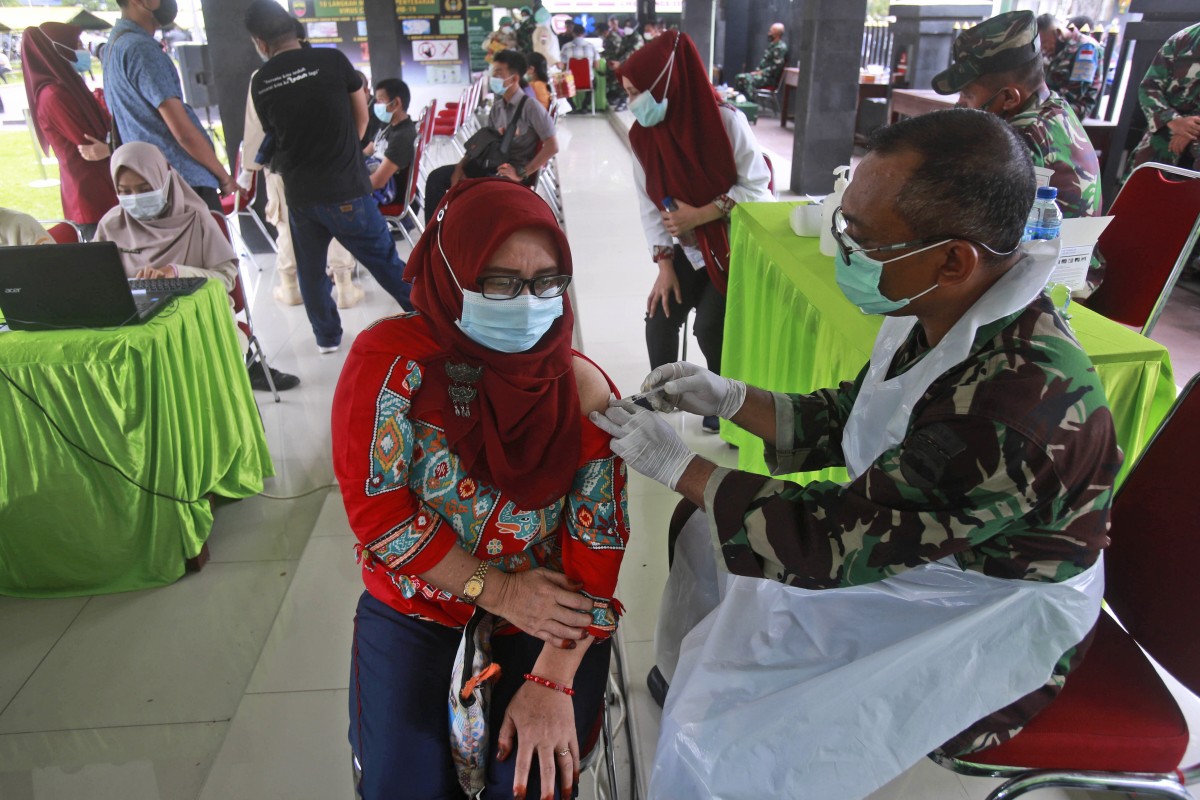
Explainer: What should you know about the delta variant of Covid-19?
- The new strain of coronavirus has been found in more than 80 countries and accounts for 90 per cent of new infections in the UK
- Studies show the available vaccines work against the variants, including the delta variant, especially for those who get both doses
 A woman receives a shot of the Sinovac vaccine during a mass vaccination drive in Indonesia. The world's fourth most populous country has seen Covid-19 infections surge in recent weeks, a climb that has been blamed on travel during last month's Eid al-Fitr holiday, as well as the arrival of new virus variants, such as the delta version first found in India. Photo: AP
A woman receives a shot of the Sinovac vaccine during a mass vaccination drive in Indonesia. The world's fourth most populous country has seen Covid-19 infections surge in recent weeks, a climb that has been blamed on travel during last month's Eid al-Fitr holiday, as well as the arrival of new virus variants, such as the delta version first found in India. Photo: APFirst off, what is the delta variant?
It’s a version of the coronavirus that has been found in more than 80 countries since it was first detected in India. It got its name from the World Health Organisation, which names notable variants after letters of the Greek alphabet.
Viruses constantly mutate and most changes aren’t concerning. But there is a worry that some variants might evolve enough to be more contagious, cause more severe illness or evade the protection that vaccines provide.
Should vaccines be required for resuming full-day lessons?
Experts say the delta variant spreads more easily because of mutations that make it better at latching onto cells in our bodies. In the United Kingdom, the variant is now responsible for 90 per cent of all new infections. In the US, it represents 20 per cent of infections, and health officials say it could become the country’s dominant type as well.
It’s not clear yet whether the variant makes people sicker since more data needs to be collected, said Dr. Jacob John, who studies viruses at the Christian Medical College at Vellore in southern India.
Studies have shown that the available vaccines work against variants, including the delta variant.
Teens in Hong Kong are hesitant to get vaccinated
Researchers in England studied how effective the two-dose AstraZeneca and Pfizer-BioNTech vaccines were against it, compared with the alpha variant that was first detected in the UK.
The vaccines were protective for those who got both doses, but were less so among those who got one dose.
It’s why experts say it’s important to be fully vaccinated. And it’s why they say making vaccines accessible globally is so critical.